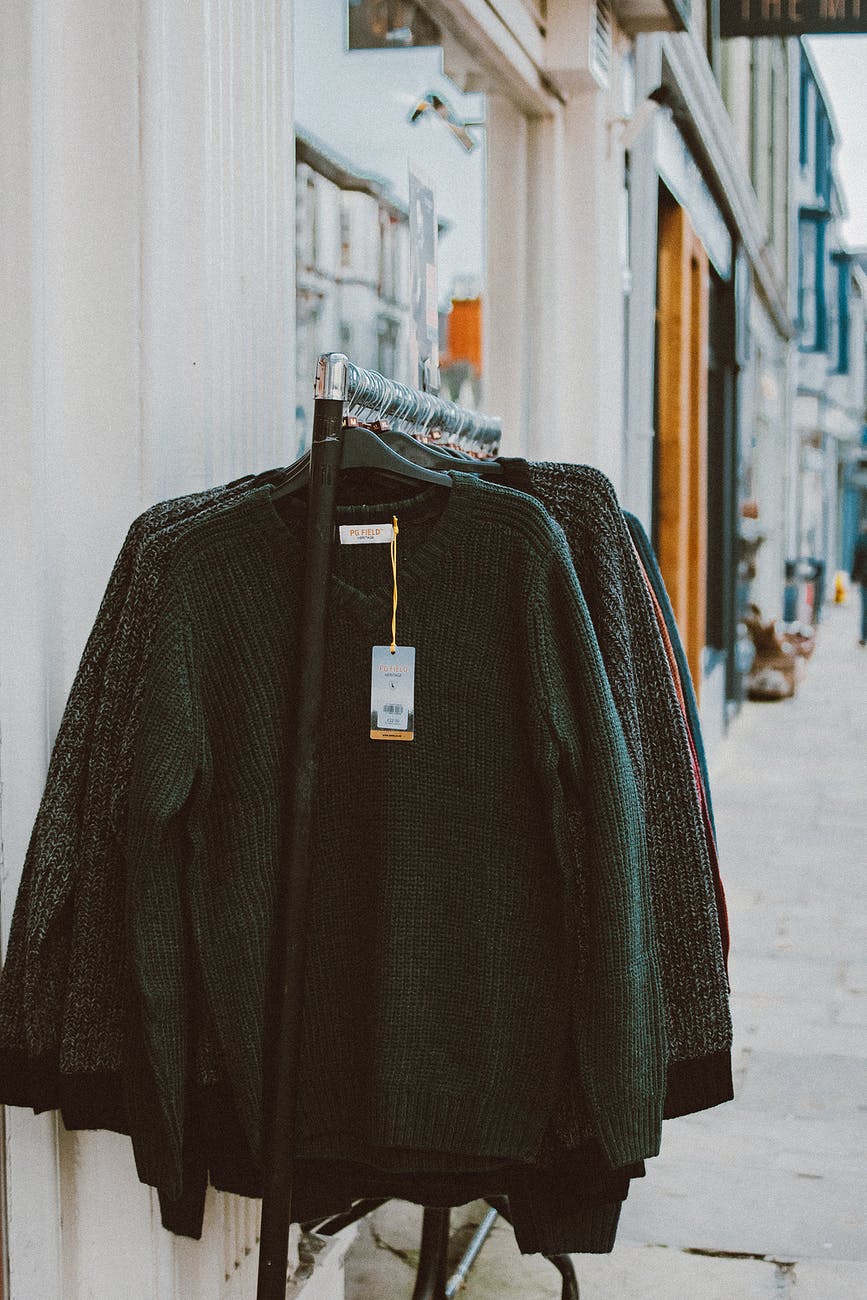Consignment shops have been around for a while now but it still remains a sort of underground concept. I frequently come across people, talking a little about what I do for work, and come to find out they have never heard of a consignment shop!

I think that due to the rise in popularity of second-hand shopping, the term “consignment” is being thrown around a little more than it had in the past. People are starting to talk about the concept but may not fully understand it. The differentiation of a consignment store with a charity thrift store can be a little gray and I’m here to shed a little light on the subject.
Within this article, I will be providing you with the difference between a consignment shop and a charity thrift store. I will also go over the pros and cons of working with or shopping at a consignment shop and the different varieties of consignment stores.
Consignment Shop vs. Charity Thrift Store

Here’s where the confusion tends to lie. Many people like to blend the term consignment with the term thrift and in a lot of ways; a consignment shop is a type of thrift store.
My definition of a thrift store is any place where you can buy second hand goods at a discounted price. Within this threshold, consignment shops do fit under the blanket of thrift stores.
The major difference is comparing consignment shops to charity based thrift stores. Consignment shops are typically for-profit stores that return a percentage of sales to the consignor (person who drops-off inventory). Charity thrift stores are non-profit and proceeds directly benefit a dedicated cause. I say typically because there are definitely consignment shops that are partial charity stores or may donate a certain percentage of sales to any given charity.
At Diversity Consignment we frequently have incentives that directly benefit certain charities. For instance, in the month of June (pride month) we dedicated the proceeds of our “Buy The Pound” area to go towards Boston Glass, a local leader in social justice and community based services for progressing diversity and inclusion.
What to Expect at a Consignment Shop

Consignment shops are beautiful places that vary in shapes, colors, and offerings. They can range from higher-end priced items to bargain basement prices. I am going to keep this section more generalized and talk about what you can typically expect to see at a consignment shop.
Unlike a charity thrift store that takes in donations, consignment shops will have a more curated selection of items. They take in what are called “consignments.” Consignments are items that have been hand selected by the team working at the store. They generally will be more specific to the audience they are trying to reach; the customer base.
You can expect to find a larger selection of quality items that are free of holes, stains, snags, or even odors. This is a general rule of thumb but again, depending on the consignment shop, this can vary. I am also primarily referring to clothing consignment shops. You can also expect to see a lot of inventory that is brand new! Some consignment shops even take the boutique approach and source their own brand new inventory.
Different Types of Consignment Shops
The best thing about consignment shops are that there are so many different types! It is also pretty easy to find one within your local community or general area.
Here’s a list of some of the types of consignment shops I know about, personally, within the Boston area.
-Boutique Style- Covet Boston
-Sporting Goods- Family Sports Consignments
-Furniture Consignment- Second 2 None Furniture
-High End Designer- Castanet Consignment
-Unique Styles / Vintage- Raspberry Beret
-Men’s Clothing- ID Drakes Consignment
-Music Consignment, Vintage, Local Art, Men’s, Women’s, Non-Binary Clothing, Records- Diversity Consignment 😉
As you can see, there are a whole lot of different types of consignment shops, all with the same premise in mind; slightly used or new goods where the consignor gets a percentage of what the items they bring in sell for. There are also consignment shops for things like tools and power equipment. A quick google search will provide you with all the information you need!
The Pro’s and Con’s of Consignment Shops

The pro’s and con’s can vary greatly depending on the specific store you’re interested in. At times, prices can fluctuate greatly for one reason or another. Location and quality of the inventory can be a couple of the factors.
If you’re looking for a specific item or one with many size variations; consignment shops may not be the ideal place for you. They usually only have one of each item on the racks or shelves and there’s not much hope that they will get another one anytime soon.
Some of the pro’s can also be some of the con’s. The fact that everything is 1 of 1 and unique can also be a great thing! Don’t worry about someone else showing up to the wedding wearing the same dress you purchased from a consignment shop! Also, I can guarantee that you saved the most money with your frugal purchases.
Consignment shops can also be a great way of getting a little money back into your wallet! When you bring things in and they sell, you get a percentage of what they sell for! Percentages can vary from consignment shop to consignment shop as well as consignment periods (the allotted time for your items to sell). Don’t expect to make a living buying and selling at consignment shops, it’s a great and sustainable means for recycling clothing and household items, but not a huge money-making venture.
That being said, another great aspect of consignment shops is the direct link to sustainability. I go over this frequently in other articles. Consignment shops aren’t going to save the planet by any stretch, but they are certainly helping things move in the right direction. Keep clothing and household items out of landfills and take them to your local consignment shop!
Conclusion

Consignment shops are great. You can find a wide variety of different types and styles that have all kinds of unique treasures to find.
Expect to pay a bit more, but have a more curated selection than the local charity thrift shops. Most of these businesses are family operated so do your best to support them. They help out the community in many ways; one of which being providing the people a place to sell their used things.
Staying sustainable is something we all need to do a better job at.
-Much Love, Ian Drake – Diversity Consignment
